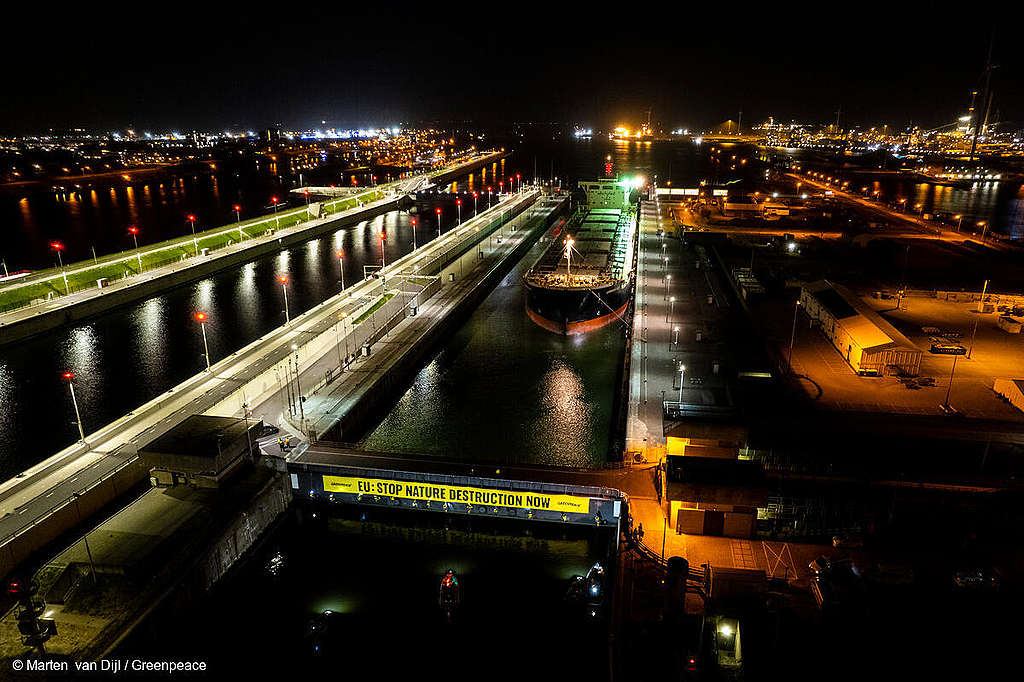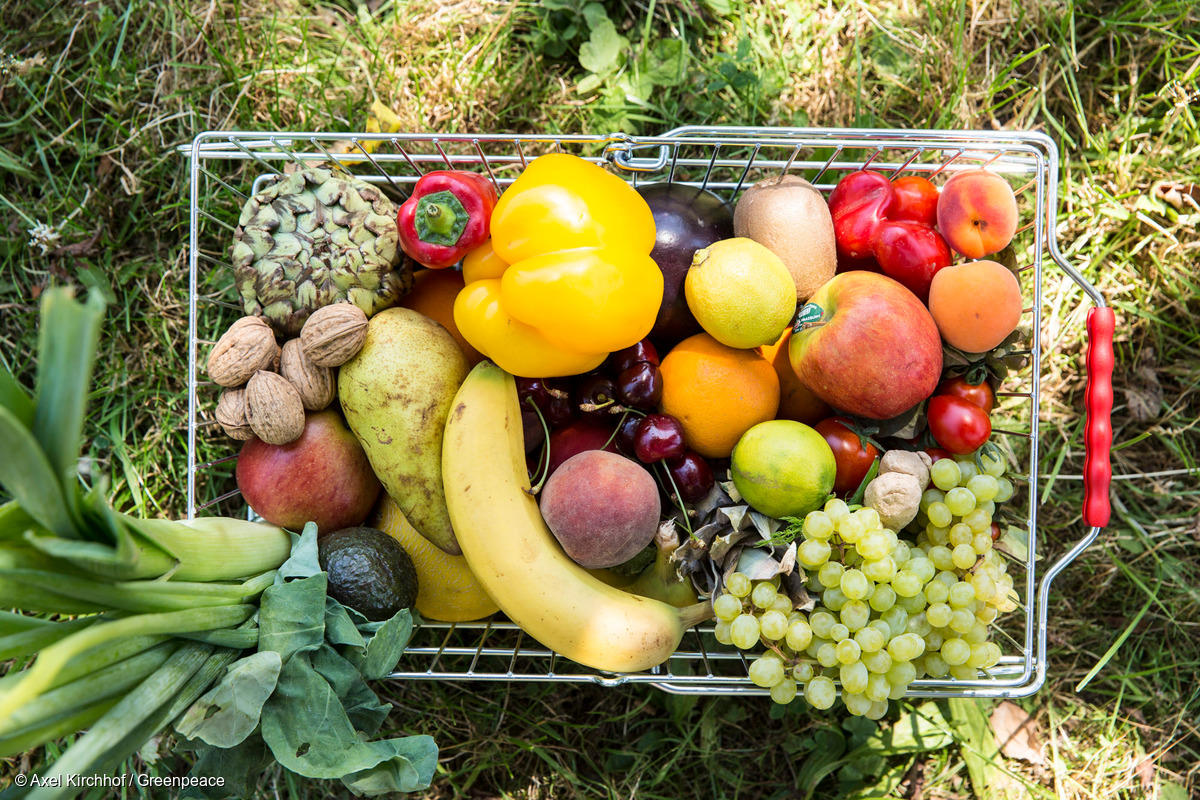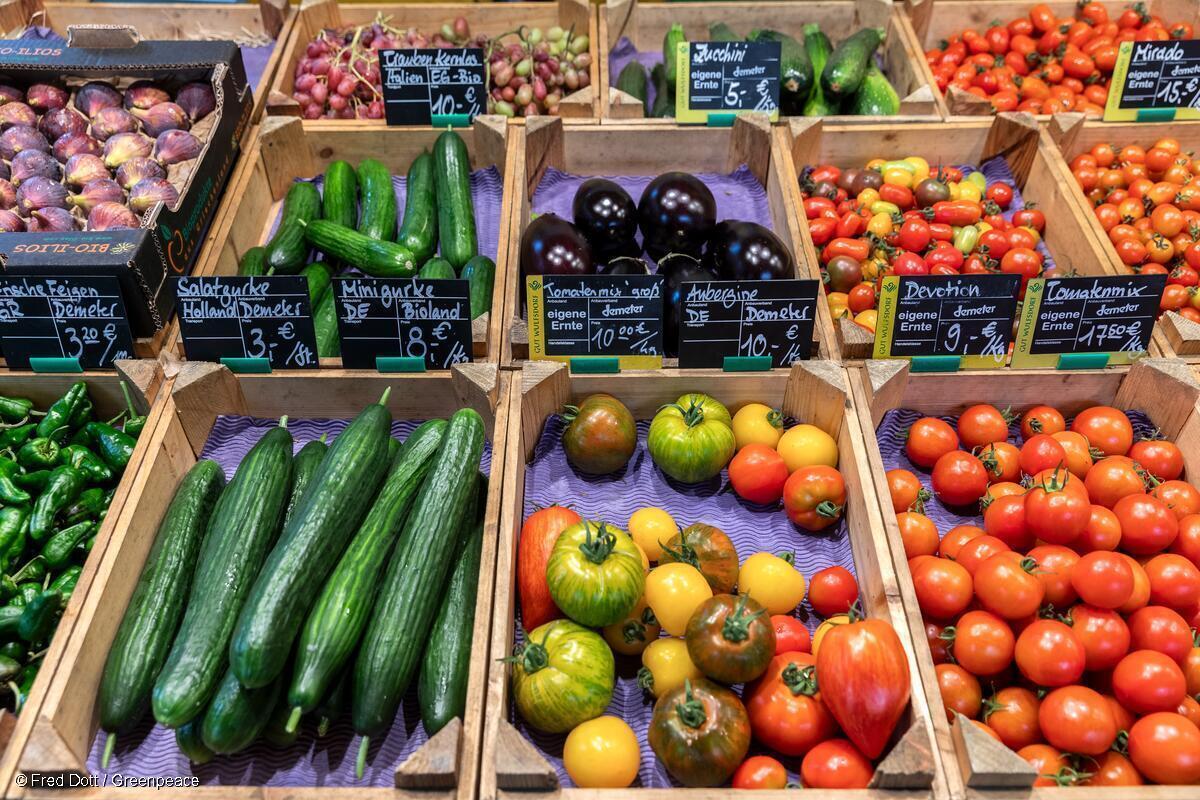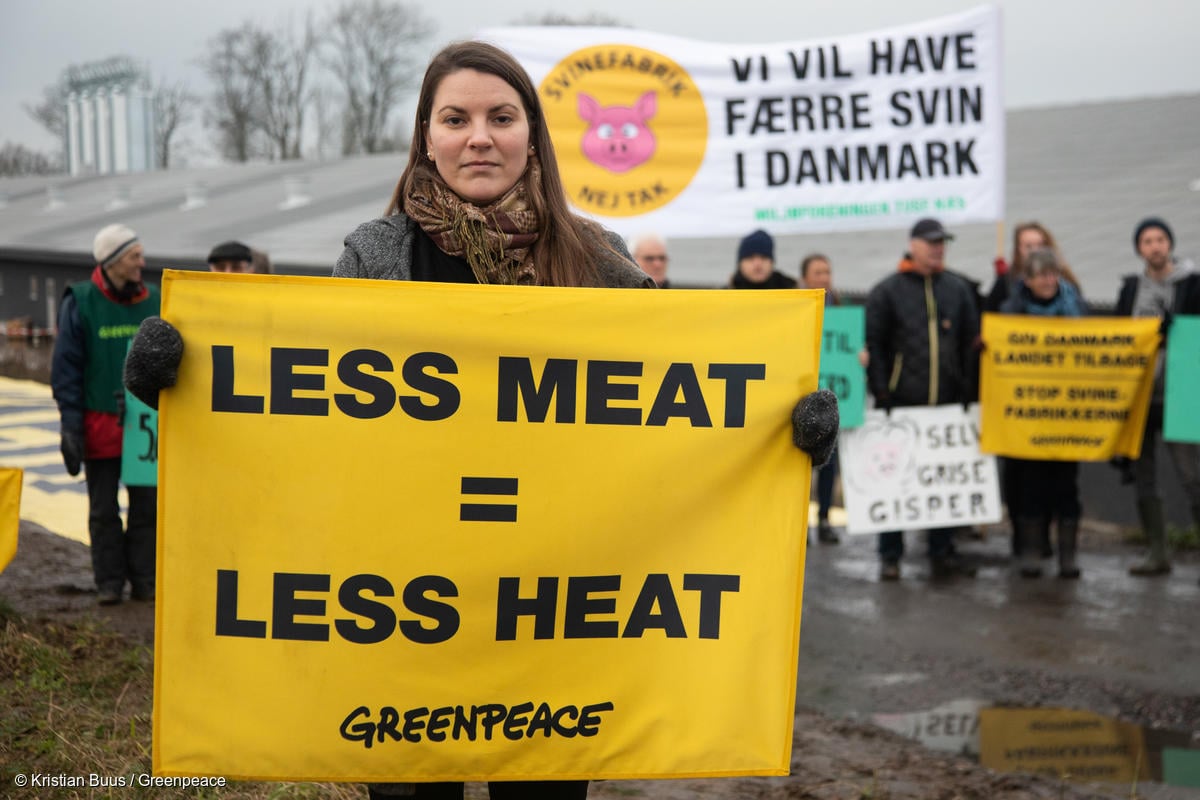Brussels – More than 60 activists from 15 European countries, volunteering with Greenpeace Netherlands, have blocked a mega-ship arriving in the Netherlands with 60 million kilos of soy from Brazil, to demand a strong new EU anti-deforestation law. Since midnight local time, activists have been blocking the lock gates the 225-metre-long Crimson Ace must pass to access the port of Amsterdam, a major gateway to Europe for the import of products such as palm oil, meat and soy for animal feed, often linked to nature destruction and human rights violations.

Greenpeace is calling on EU ministers to strengthen the proposed EU anti-deforestation law to require companies selling products like this soy for animal feed to know exactly where it came from, and to show that nature has not been destroyed to produce it, before it can be sold on the EU market.
High-quality photo and video from the protest is available free to use here
Greenpeace EU agriculture and forest campaigner Sini Eräjää said: “People in Europe aren’t driving the bulldozers, but we share responsibility for clear-cuts of Borneo’s forests and fires in Brazil’s savannahs by buying the products from the cleared land. The companies trading the soy in this ship give no assurances to the farms buying it and the people eating the meat fed with it that it’s not linked to destroyed ecosystems. Ministers must fix the EU deforestation law to ensure that everything sold in Europe is traceable and proven clean of nature destruction and human rights abuse.”
Indigenous leaders from Brazil, aboard Greenpeace’s 33-metre-long sailing ship the Beluga II, are also joining activists from across Europe taking part in the peaceful protest at the sea gate in IJmuiden, west of Amsterdam. Climbers are blocking the lock gates and have hung a banner that reads ‘EU: Stop nature destruction now’. On the water, activists are sailing dinghies and have deployed large inflatable cubes floating in front of the lock gates, carrying the message ‘Protect Nature’ and the names of over ten thousand people who support the protest.
Alberto Terena, Indigenous Leader of the Terena People’s Council in the state of Mato Grosso do Sul said: “We have been driven from our land and our rivers have been polluted with poison, all to make room for agribusiness expansion. Europe shares responsibility for the destruction of our homes. But this legislation can help to stop future destruction. We call on ministers to seize this opportunity, not only to ensure indigenous people’s rights, but also for the future of the planet. The production of feed for your industrial animals and the beef that is imported should no longer mean our suffering.”
Importing destruction – new research
Every year, the EU consumes millions of tonnes of soy to use as animal feed, almost all of which is imported from places like South America. The Netherlands is the EU’s biggest soy importer, acting as hub for further re-exports to other EU countries.
A new study commissioned by Greenpeace Netherlands reveals that, in 2019, over 65% of Dutch soy imports came from South America, with Brazil the leading source. Expanding soy production in Brazil and neighbouring countries has been repeatedly linked to destruction of ecosystems like the Cerrado savannah, and to violations of human rights.
The amount of land required to produce all the soy imported to the Netherlands is approximately 2.4 million hectares, or 16 times the area of Greater London. Of the soy imported to the Netherlands, around two-thirds is re-exported to other European destinations like Germany, Belgium, France, the UK and Denmark.
EU anti-deforestation law
Greenpeace is calling on European ministers and the European Parliament to strengthen the European Commission’s proposal for an EU law to cut deforestation out of Europe’s supply chains. The current proposal would apply to forests only, leaving ecosystems like the Cerrado savannah or the Pantanal wetlands vulnerable and would not apply to many products such as pork, chicken and rubber which have significant links to destroyed natural areas. Environmental and rights groups are also warning that the draft EU law does not adequately protect the human rights of ingigenous people and local communities where ecosystems are threatened.
Environment ministers from the 27 EU countries will meet on 28 June to discuss the draft anti-deforestation law.
Contacts:
Sini Eräjää, Greenpeace EU agriculture and forest campaigner: +32 476 975 960, [email protected]
Greenpeace EU press desk: +32 (0)2 274 1911, [email protected]
For breaking news and comment on EU affairs: www.twitter.com/GreenpeaceEU
Greenpeace is an independent global campaigning network that acts to change attitudes and behaviour, to protect and conserve the environment and to promote peace. We do not accept donations from governments, the EU, businesses or political parties. Greenpeace has over three million supporters, and 26 independent national and regional organisations with offices in more than 55 countries.
EU Transparency Register: 9832909575-41



